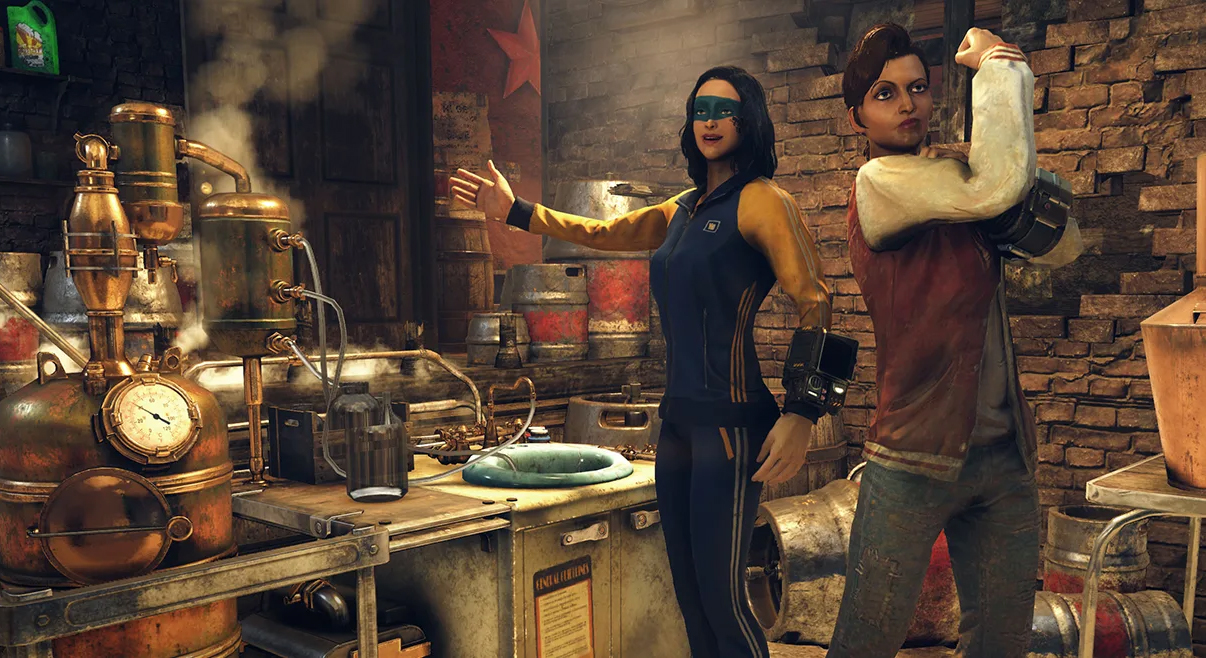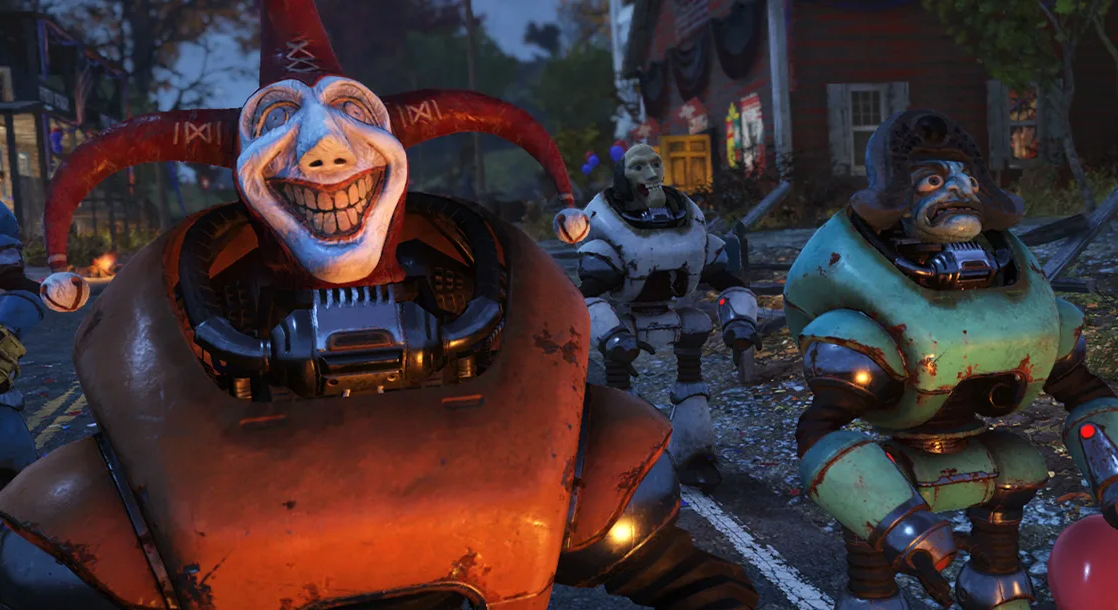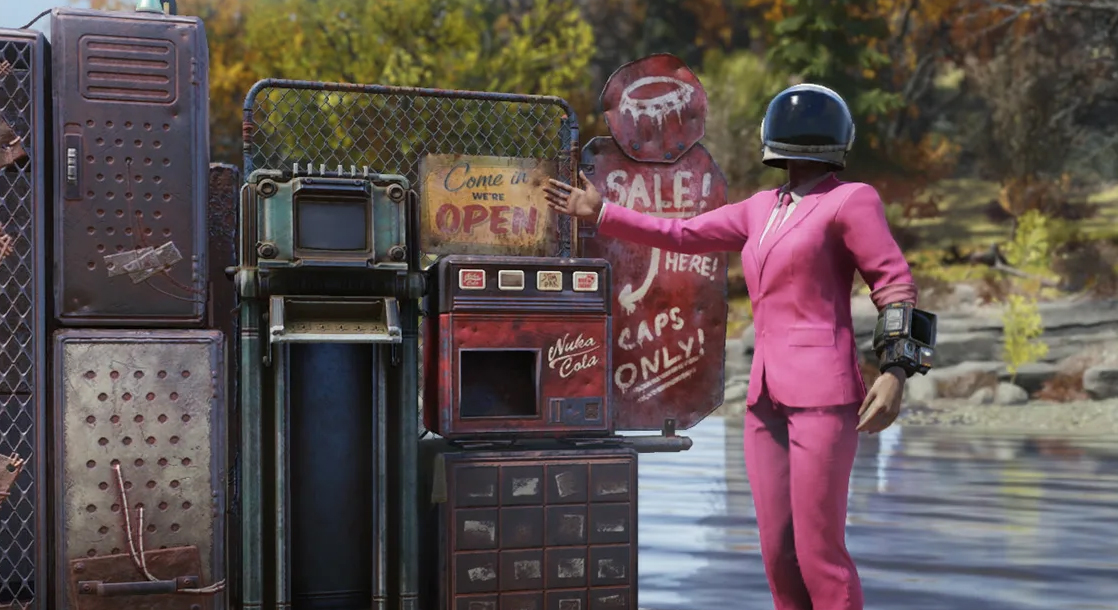Fallout 76's project lead on learning how to 'feed the beast' of a live service game
"We can't feed the beast fast enough. But the faster we feed it, the more likely it's going to get sick," says Jeff Gardiner.

From March to May, Fallout 76's Wild Appalachia update delivered a steady stream of quests, items, events, and new features on a near-weekly basis. Regularly interspersed with those releases were smaller patches to fix bugs, tweak gameplay, and address community feedback. This summer, Fallout 76's Nuclear Winter update will bring a battle royale mode and 8-player raids, and in the fall the Wastelanders update will add human NPCs, dialogue trees, and new quests.
This relentless pace of new content and updates, and the community's unquenchable appetite for it, have become normalized in an industry where Fortnite is a constantly changing landscape, where developer crunch is under heavy scrutiny, and where Apex Legends is criticized by a chicken store for not adding new content fast enough.
At E3 we talked with Jeff Gardiner, project lead for Fallout 76, about how Bethesda manages to balance the players' expectations for new content without burning themselves out, the adjustment from working on singleplayer RPGs to a live game service game, and how faster doesn't mean necessarily mean better.

"You know, I've been at Bethesda for almost 14 years since Oblivion," Gardiner said. And I make and love singleplayer roleplaying games. So I had to learn very quickly on this project, how this works. And one of the things we have learned is, you know, things can't be done fast enough. And the faster you do them, the more likely they are to break."
So we never do these things intentionally. And we never do them because we're, like, lazy.
Jeff Gardiner, Project Lead
Gardiner brings up Fallout 76's bobby pins, which players collect and use to pick locks. At launch, each bobby pin weighed 0.1 pounds, which meant players were being weighed down substantially for carrying more than a handful of the tiny items. A later patch changed their weight to a more sensible .001 pounds—but the fix didn't arrive quickly enough for some.
"Bobby pin weight, we missed and it got bashed. And Todd Howard got sent a box of bobby pins in the mail. And it was such a reaction to that, it sort of took us off guard. And again, like, we're only human. It's a 70-gig game, there's a lot. So we never do these things intentionally. And we never do them because we're, like, lazy."
"I mean, that's the kind of insinuation. Mistakes get made. So we try our best to find that balance between... we can't feed the beast fast enough. But the faster we feed it, the more likely it's going to get sick. So, you sort of have to find that really good balance."
Keep up to date with the most important stories and the best deals, as picked by the PC Gamer team.

Good feedback is great. And it makes me feel good. But I'm not learning from that.
Jeff Gardiner, Project Lead
Working too quickly to address feedback can sometimes create more problems. For instance, that bobby pin fix actually wound up being reverted by a later patch, which again made them weigh 0.1 pounds, meaning another patch had to shipped to fix them for a second time. Those types of rushed mistakes are how Bethesda arrived at its update schedule: a major patch every few weeks with a smaller one later to fix issues that may have resulted from that patch, or to add a few things that didn't make the original deadline.
Now "we're being smarter about what we're doing," he said. "In the beginning it was a sort of fire hose. Some of those patches had thousands of bug fixes. And so now we're slowing it down."
Balancing an asymmetrical game is a struggle, Gardiner says, and when it comes to nerfing certain weapons, like a double-damage shotgun that was too over-powered, he can sympathize with unhappy Fallout 76 players because he's a Warhammer fan. "And I learned if there's some exploit I'm using in my army, Games Workshop is going to come in and nerf it. So I better not buy all those miniatures, because I'm just going to be sad in a couple months. So, you sort of have to find that balance."
But complaints and negative feedback from the community isn't a bad thing. In fact, Gardiner thinks its more valuable than positive feedback.
"I can't tell you, the fans of this game have been incredible, the fact that they stuck with us and they send us this feedback, good and bad, right? Because we don't learn anything from good. Good feedback is great. And it makes me feel good. But I'm not learning from that. If I don't fall down and skin my knees sometimes I'm not running hard enough, right?
"It's been a humbling experience for us in a lot of ways," Gardiner says, "but one I think that's important for our studio. And I'm thrilled with 76 and what it's become, and where it's going."

Chris started playing PC games in the 1980s, started writing about them in the early 2000s, and (finally) started getting paid to write about them in the late 2000s. Following a few years as a regular freelancer, PC Gamer hired him in 2014, probably so he'd stop emailing them asking for more work. Chris has a love-hate relationship with survival games and an unhealthy fascination with the inner lives of NPCs. He's also a fan of offbeat simulation games, mods, and ignoring storylines in RPGs so he can make up his own.

